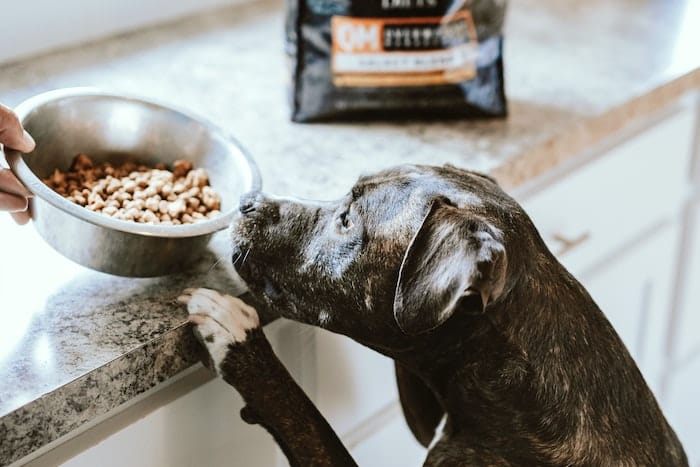Finding the right pet food is easier said than done. You want the best for your dog, but it’s easy to get overwhelmed with choices when you don’t know what to look for. And when there are 630 different pet food brands, that doesn’t make your job any easier.
You can’t afford to make the wrong choice if you want your dog to remain healthy for many years. Below are eight common dog food purchasing mistakes that you need to avoid.
1. Buying Too Much
Dog food can last a while but won’t stay good forever. The food you buy will have expiration dates, which you need to learn when looking at your dog food choices.
This normally isn’t a big deal if you don’t buy much food. However, some people will try to save money by purchasing food in bulk.
You need to consider the amount of food your dogs eat when doing this. Make sure you don’t go over the expiration date and end up with rancid food.
2. Not Checking Labels
Not all dog food is created equal. Some brands add tons of additives to their food to try and add bulk and increase shelf life. Not all of those additives are healthy for dogs.
Make sure to look at the labels on the types of dog food you see to see what ingredients they use. Look for brands that use things you recognize and avoid unnecessary additives.
You can also check online to see what other people say about dog food ingredients. You can learn a lot there about what to look for on labels and what to avoid.
3. Buying the Cheapest Food
Cheap food is another cause for concern when looking for dog food. Healthy alternatives can get expensive over time, so it’s tempting to save as much money as possible by going for the lowest-priced option.
Even if it isn’t an issue with some brands, you never know what corners a company will cut to get the price down. There may be no obvious additives that cause problems, but the main ingredients may be of lower quality. You may experience health issues for dogs if you feed them low-quality food.
Ensure you thoroughly vet your food options if you go by price and avoid the low-quality options.
4. Ignoring Age
The nutritional needs of a puppy are much different than an older dog in its later years. A puppy needs foods that are high in protein and other nutrients that aid in growth. It can face issues if it doesn’t get the right type of nutritional content.
However, that nutritional profile isn’t as necessary for older dogs. They need nutrients that help them maintain their health and weight. They are also better off with easily digestible food with fewer calories.
If you need help figuring out exactly what your dog needs, make sure you reach out to your local vet to get nutritional advice for your dog’s age.
5. Not Considering Activity Levels
You must ensure you feed your dog the right level of calories. However, that number will change based on your dog’s size and how active they are during the day.
If you have a dog that lays around much of the day, it won’t need to eat as many calories to get by. But if you have a dog that runs around half the day, they’ll burn off more than they eat if you aren’t careful. You’ll need to feed them more to ensure they don’t become underweight.
6. Ignoring Health Conditions
You can’t feed every type of food to all dogs. There are many health conditions out there that dogs get through their lives. If you feed your dog an ingredient that complicates those conditions, you may end up going to the vet.
Make sure you have a complete understanding of your dog’s health. Reach out to your vet to learn more and figure out which foods will work best for your dog’s health needs.
7. Substituting Human Food
Many people believe feeding dogs table scraps from time to time is no big deal. Their dogs seem fine at the time, but that doesn’t mean there are no bigger issues brewing that have yet to show themself.
Not all human food is good for dogs. In fact, many things are dangerous and must be avoided at all costs.
That’s why human food is never a substitute for dog food. If you do decide to feed a dog human food, make sure you research its health impact on dogs before making your decision.
8. Not Reading Reviews
The great thing about the internet is that there are many resources available on every subject. Dog food is no different. Many websites devote resources to reviewing the quality of all the dog food on the market.
Check a website that covers dog food quality like DogFoodPoint to see what experts have to say. You can learn which food people recommend and which will work best for your dogs.
Don’t Fall Victim to Common Dog Food Purchasing Mistakes
Taking care of dogs can get expensive, so it’s no surprise that you want to get the best bang for your buck when buying pet supplies. However, you can make many dog food purchasing mistakes when looking for the best deal possible.
Make sure you remember the things above when looking at dog food brands. When you know what to avoid when looking for dog food, you can be assured that your dog will remain healthy and continue living a great life.
Head back to the blog to find more tips that will help you care for your furry friends.
Related Reading


